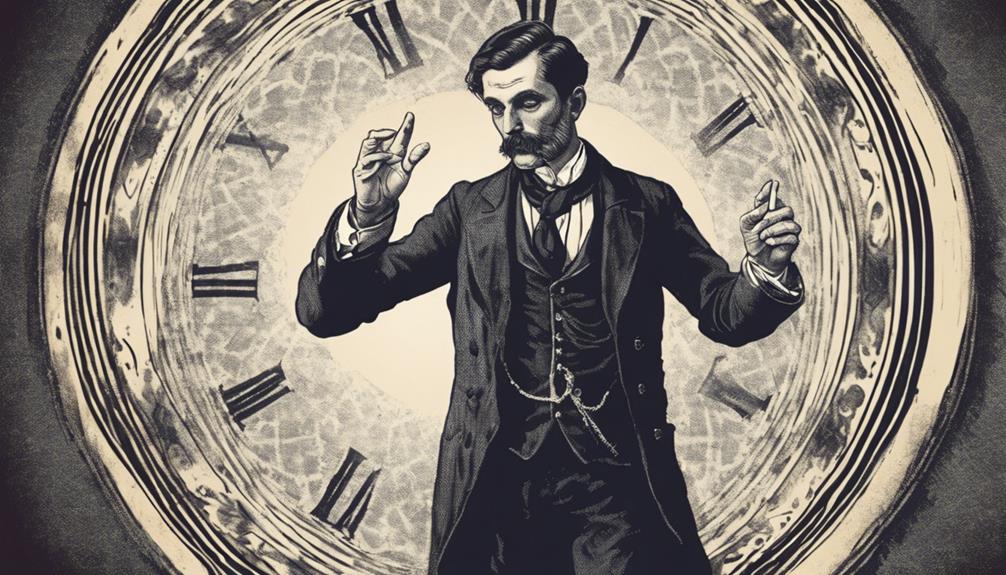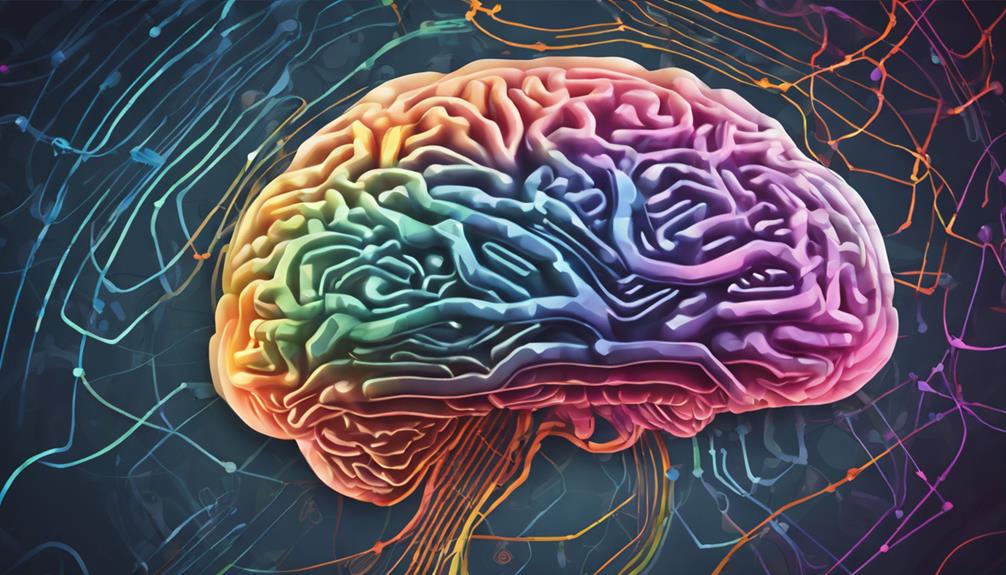The development of hypnosis theories traces back to the late 18th and early 19th centuries, marked by a growing interest in altered states of consciousness and suggestibility. Franz Mesmer's work with animal magnetism significantly influenced early theories, leading to the exploration of trance induction techniques. Evolution into state theories highlighted the role of altered consciousness states in therapeutic interventions. Suggestion emerged as a pivotal element shaping hypnotic phenomena and individual responsiveness. More recent advancements have integrated cognitive neuroscience principles into modern hypnosis models, enhancing therapeutic effectiveness. The journey of exploring hypnosis theories reveals a captivating evolution across psychology, neuroscience, and clinical practices.
Early Hypnosis Theories

The early development of hypnosis theories can be traced back to the late 18th and early 19th centuries, marked by a growing interest in the phenomenon of altered states of consciousness and suggestibility. During this period, researchers began exploring techniques for trance induction, leading to the understanding that individuals could be guided into altered states of consciousness characterized by heightened suggestibility.
These altered states allowed for the manipulation of perceptions, sensations, and behaviors, laying the foundation for the later formalization of hypnosis as a psychological phenomenon.
Trance induction became a focal point of study, with researchers experimenting with various methods to induce altered consciousness in individuals. Through these studies, it became evident that hypnosis could be utilized as a tool for therapeutic intervention, tapping into the subconscious mind to address psychological issues.
The early exploration of altered consciousness and suggestibility set the stage for further advancements in hypnosis theories and applications, shaping the field into what it is today.
Mesmerism and Animal Magnetism
Mesmerism and animal magnetism emerged as influential concepts in the development of hypnosis theories during the late 18th and early 19th centuries, shaping early understandings of altered states of consciousness and suggestibility.
Franz Mesmer, a German physician, introduced the concept of animal magnetism, a vital force he believed flowed within living organisms. Mesmer's techniques involved inducing trance-like states in patients to rebalance their magnetic fluid and alleviate symptoms. Despite controversy surrounding his methods, Mesmer gained a following and his ideas sparked further exploration into the power of suggestion and trance states.
The magnetic fluid concept proposed by Mesmer suggested that individuals could influence each other through the transfer of this fluid, leading to various physical and psychological effects. Although the magnetic fluid idea was later discredited, Mesmer's work laid the groundwork for the development of hypnosis as a therapeutic tool. His techniques paved the way for the understanding of how suggestion and interpersonal dynamics could impact an individual's state of consciousness.
Development of State Theories

Emerging from the foundational ideas of Mesmerism and animal magnetism, the development of state theories in hypnosis delves into the nuanced understanding of altered consciousness states and their therapeutic applications.
State theories propose that hypnosis involves inducing an altered state of consciousness characterized by focused attention, heightened suggestibility, and deep relaxation. This altered state, often induced through hypnotic induction techniques, allows individuals to be more receptive to suggestions, leading to changes in perception, behavior, and cognition.
The concept of altered consciousness in hypnosis aligns with neuroscientific findings that show distinct patterns of brain activity during hypnotic states compared to normal waking consciousness. Research also suggests that during hypnosis, individuals may experience changes in neural connectivity and reduced awareness of external stimuli.
These alterations in consciousness highlight the potential for hypnosis to tap into the subconscious mind and facilitate therapeutic interventions, such as managing pain, improving habits, and addressing psychological issues. Understanding and harnessing these altered states through state theories are fundamental to the practice and advancement of hypnosis as a therapeutic tool.
Role of Suggestion in Hypnosis
Understanding the pivotal role of suggestion in hypnosis is essential for comprehending its mechanisms and therapeutic effects. Suggestibility studies have shown that the power of suggestion plays a significant role in inducing hypnotic phenomena. Individuals with higher hypnotic susceptibility tend to be more responsive to suggestions during hypnosis, leading to deeper trance states and greater therapeutic outcomes.
Research in hypnotic susceptibility has revealed that suggestibility varies among individuals, influencing their responsiveness to hypnotic suggestions. These suggestions can shape perceptions, sensations, emotions, and behaviors, highlighting the profound impact of suggestion in altering subjective experiences.
Moreover, the power of suggestion in hypnosis extends beyond the session itself, influencing post-hypnotic suggestions and long-term therapeutic benefits.
Modern Cognitive Hypnosis Models

Recent advancements in the field of hypnosis have led to the development of modern cognitive hypnosis models that integrate cognitive theories with traditional hypnotic techniques. These models are grounded in the principles of cognitive neuroscience, emphasizing the role of cognition in shaping subjective experiences and behaviors during hypnosis. By combining cognitive theories with hypnotic strategies, modern cognitive hypnosis models aim to enhance the effectiveness of hypnotherapy interventions.
Cognitive neuroscience provides a scientific foundation for understanding how cognitive processes influence hypnotic responses. This interdisciplinary approach has enriched our comprehension of the mechanisms underlying hypnosis, shedding light on the neural correlates of hypnotic phenomena.
Moreover, modern cognitive hypnosis models have shown promising results in various therapeutic applications. By targeting cognitive mechanisms such as attention, perception, and memory, these models offer innovative ways to address a wide range of clinical issues, including chronic pain management, anxiety disorders, and addiction treatment. The integration of cognitive theories with hypnosis techniques opens up new possibilities for enhancing therapeutic outcomes and improving patient well-being.
Frequently Asked Questions
Can Hypnosis Be Used to Recover Repressed Memories?
Hypnosis can be controversial in memory retrieval due to ethical concerns and potential formation of false memories. Scientific evidence suggests therapeutic benefits in certain cases, but caution is warranted to navigate ethical dilemmas and ensure accuracy.
Are There Any Risks or Side Effects Associated With Hypnosis?
When considering hypnosis, it is essential to acknowledge potential dangers and psychological effects. While generally safe when administered by trained professionals, side effects like false memories and heightened suggestibility warrant caution and thorough assessment.
How Do Cultural Beliefs Influence the Effectiveness of Hypnosis?
Cultural beliefs can significantly impact the effectiveness of hypnosis by shaping individuals' receptivity to hypnotic suggestions. Placebo effects and suggestibility levels are influenced by these cultural influences, highlighting the intricate interplay between mindset and hypnotic outcomes.
Can Hypnosis Help With Physical Pain Management?
Hypnosis shows promise in managing chronic pain by influencing pain perception and neural pathways. Research suggests its efficacy may relate to the placebo effect, altering how individuals perceive and respond to physical discomfort.
Is There a Genetic Predisposition to Being Susceptible to Hypnosis?
Genetic influences play a role in determining susceptibility to hypnosis. Research suggests a potential link between certain genetic markers and responsiveness to hypnotic suggestions. This susceptibility may also influence the likelihood of accessing repressed memories during hypnosis sessions.
Conclusion
In conclusion, the development of hypnosis theories has evolved significantly over time, from early concepts of mesmerism and animal magnetism to modern cognitive models.
The role of suggestion in inducing hypnotic states has been a key focus throughout this development, highlighting the importance of psychological factors in hypnosis.
Understanding the historical and theoretical foundations of hypnosis can provide valuable insights into its mechanisms and applications in clinical practice.


